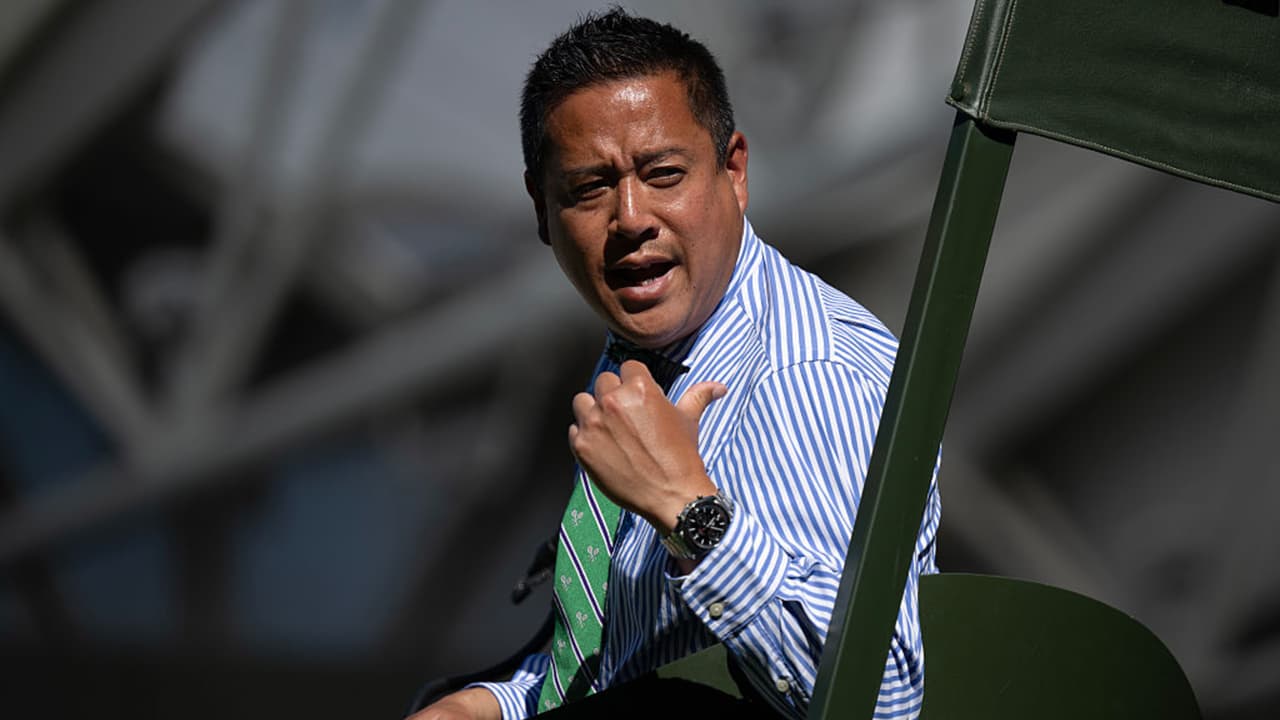British umpire James Keothavong made history by chairing men’s singles finals at all four Grand Slam tournaments. His decades-long career highlights consistency, resilience and authority, earning respect as one of tennis’s most trusted officials.
From Wimbledon to New York, British umpire James Keothavong has quietly made history by chairing men’s singles finals at all four Grand Slam tournaments.
Tennis fans know the names Sinner, Alcaraz and Djokovic. They are the stars who lift trophies and dominate headlines. Yet on the sport’s biggest stages there is another figure, far less recognized but equally vital to the game. His name is James Keothavong, described as “royalty” in the tennis world. He has worked 75 consecutive Grand Slam matches since starting as a line judge at Wimbledon in 1999. His greatest accomplishment is now clear. He has chaired men’s singles finals at all four Grand Slam tournaments, a milestone few umpires have ever reached.
Keothavong’s rise began quietly. As a teenager on the Wimbledon lines, he saw the sport’s traditions from up close. Rather than treat it as a summer job, he found his calling. Officiating demanded knowledge, focus and calm authority, qualities that he developed steadily as he climbed through the officiating ranks. His path eventually led him to the chair, where every call is scrutinized by players, fans and television audiences worldwide.
The defining moment of his career arrived in 2014. Keothavong was chosen to chair the Wimbledon men’s singles final between Novak Djokovic and Roger Federer. It was a classic that went to five sets and demanded absolute concentration. For Keothavong it was both an honor and a test of composure, one he passed with quiet assurance.
From there the milestones followed. He presided over men’s finals at the Australian Open, the French Open and, most recently, the US Open. That completed the set and confirmed his reputation as one of the most trusted officials in the game. Few umpires are asked to oversee even one major singles final. To have chaired them all is proof of the confidence tennis places in him.
His record extends beyond the finals themselves. Keothavong has worked at more than seventy five consecutive Grand Slam events, a streak that speaks to consistency and resilience. Players know that with him in the chair, the match will be managed fairly and calmly. Fans rarely notice the umpire when everything runs smoothly, but that invisibility is often the highest compliment.
Endurance is also part of his story. In a Davis Cup doubles tie between Switzerland and the Czech Republic, Keothavong sat through a marathon that ended 24–22 in the fifth set. The match lasted more than seven hours. By the end, his concentration had been tested to the limit and his legs were stiff, but he had managed to keep order in one of the longest contests in tennis history.
The sport is also a family affair. His sister Anne Keothavong became Britain’s number one and later captained the national Billie Jean King Cup team. Where Anne built her reputation on the court, James found his calling in the chair. Both have made lasting contributions to British tennis in their own ways.
Keothavong may never be celebrated with trophies or chants from the crowd, but his role is essential. Tennis cannot function at the highest level without officials who bring authority, judgment and calm. His career shows that greatness in the sport is not limited to the athletes who hit the winners. It also belongs to those who ensure that the rules are applied and that the game retains its integrity.
From Centre Court to Rod Laver Arena, from Roland Garros to Arthur Ashe Stadium, James Keothavong has been present for some of the defining moments of modern tennis. He may work in the shadows of the champions, but his place in the history of the game is secure.
